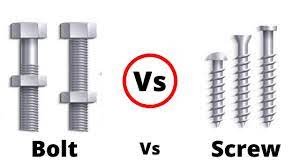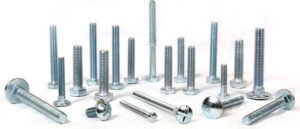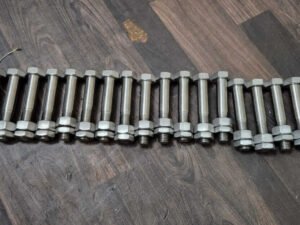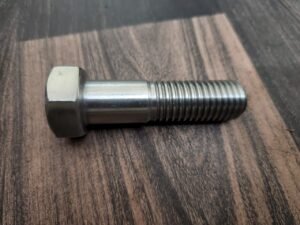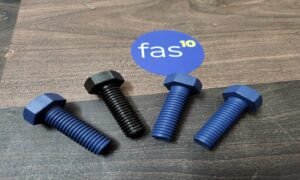The difference consistent with a thesaurus is that there’s no difference as bolts and screws are considered synonyms of each other. While it might be easy to club these definitions together (it would make our job easier!) there are literally significant differences which a user must remember before making a decision.
It is true that, to the naked eye, there doesn’t appear to be much difference between a bolt and a screw, they both are threaded fasteners and have a head for tightening the fastener but there’s more thereto than just that.
The fundamental difference between screws and bolts is that the former is employed to assemble threaded objects, while the latter is employed to assemble unthreaded objects. Thereupon said, screws can dig their own threads during the installation process.
It’s also worth noting that screws must be turned to assemble a joint, while bolts are often secured in-situ by employing a tool or a bolt. Bolts typically want to make a bolted joint by employing a nut to use force while using the shank to act as a dowel. This essentially pins the joint against sideways forces. and since of this, many bolts have an unthreaded shank (known as an edge length); thus, making them simpler for dowels.
There are dozens of various sorts of bolts, a number of which include anchor bolts, arbor bolts, elevator bolts, hanger bolts, hex bolts, J bolts, lag bolts, rock bolts, shoulder bolts and U bolts. Additionally, bolts are available during a wide selection of materials, including steel, chrome steel, bronze, brass and nylon. Statistics show, however, that up to 90% of all bolts are made from steel, making it the well-liked choice among manufacturing companies.
There also are dozens of various sorts of screws, a number of which include chipboard screws, fibreboard screws, deck screws, drive screws, hammer drive screws, drywall screws, eye screws, dowel screws, wood screws, twin fast screws, security head screws and sheet screws. A number of the various head shapes during which screws are available include pan, button, round, mushroom, oval, bulge, cheese, fillister and flanged. And like their bolt counterparts, screws are available in a range of materials.
The development of bolts and screws, particularly where security may be a factor, has been driven mainly by the applications they’re getting used for and therefore the level of security required. For instance, if the fixing is permanent and not requiring removal, then a shear bolt (which features a break head leaving a clear head with no drive to get rid of the bolt) could be suitable.
For a removable fixing, the top is the important factor because the driver wants to fix and take away it shouldn’t be generally available. Security driver bits are available, which can be specifically matched to the top of the safety screw, to stop unauthorized tampering. the driving force tool is patented, uniquely coded and traceable for the last word in security.
Screws are usually the way to go, since the threads can grab onto whatever material you’re screwing into. You’ll see tons of them in woodworking, also as light-to-medium construction. Heck, you’ll also use all of them round the house to mount shelves, mirrors and cabinets.
Screws also are the foremost common sort of fastener and that they are often used with all kinds of materials, which is why there are numerous different types of screws, like deck screws, drywall screws, sheet screws, wood screws, and more.
However, while screws do have tons of holding power, they’re not recommended for really heavy-duty construction where the fasteners would be under significant load. This is often where bolts are available.
It’s best to use bolts whenever the fastener is going to be under any significant amount of weight stress, or any project where you’re using large pieces of lumber or other material. So, projects like building a porch or fastening a suspended swing there under the porch are getting to require bolts of some kind in certain locations.
This is because bolts are available at much larger sizes than screws do, so they’re great for attaching larger pieces of lumber together, also as having the ability to handle far more weight if need be. Plus, having the ability to screw a nut onto the opposite end of the bolt means you’ll tighten down bolts and fasten together materials far more securely than you’ll with screws. As pictured above, a nut and bolt can squeeze together two parts that you simply want to attach.
fas10 (Fasten) provides coated fasteners (ptfe, xylan, dacromet), alloy fasteners, exotic fasteners, brass fasteners, aluminium fasteners, stainless steel fasteners. At fas10 (Fasten) Mumbai, the leading manufacturers in high grade fasteners and stockists, we will make sure you have the right fasteners.
fas10 (Fasten) supplies a good range of hard-to-source exotic alloy and coated fasteners for specific grade applications. As you browse the ranges, you’ll see the extent of the selection available, therefore, if you’re unsure of which fastener is going to be best suited for your application, please get in touch – our sales team is always available to help together with your queries.

